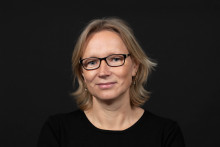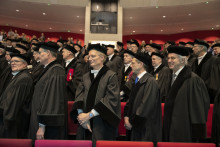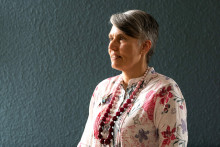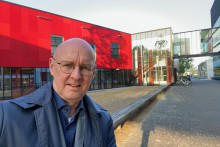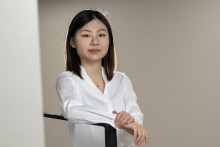Before you came to the UT, you worked at the Forest and Nature Conservation Policy Group of Wageningen University. Now you lead the Science, Technology and Policy Studies section. What is at the core of your work?
Professor Turnhout: ‘At the core of my work has always been the desire to improve relationships between science and policy and society. This derives from my PhD research. I was studying natural sciences, but I didn’t only want to produce scientific knowledge, I wanted the knowledge to be relevant and useful for nature conservation. However, during my PhD, I found out that a lot of knowledge exists, but it is not being used in practice. I wondered why and was able to change my research topic to this very question: Why isn’t the existing scientific knowledge being used? But then, I’ve learnt that it is not only about policy makers not using science. Some scientific experts actually seem to have too much power and influence in certain fields, which brings up the question of legitimacy of science.’
esther turnhout
Esther Turnhout has held the position of professor at the University of Twente since September 2021. She is also the chair of Science, Technology and Society at the Section of Science, Technology and Policy Studies (STePS) at the BMS Faculty. Before moving to Twente, she spent eighteen years at the Wageningen University, since 2016 as Professor in 'The Politics of Environmental Knowledge' at the Forest and Nature Conservation Policy Group.
Professor Turnhout is an interdisciplinary social scientist with expertise in science and technology studies, environmental studies, and political science. Much of her research focuses on biodiversity science and governance. She plays several active roles in the Intergovernmental Panel on Biodiversity and Ecosystem Services (IPBES) and was an author of the IPBES Global Assessment of biodiversity and ecosystem services that was launched in 2019.
And you have worked on the topic of biodiversity and science-policy interface ever since?
‘Yes, most of my work is related to biodiversity and nature conservation, but my focus has shifted more towards global processes and broader sustainability questions. Biodiversity is not a separate topic, it is part of a larger sustainability crisis – together with climate change, food security, and inequality.’
Where does this interest in nature come from?
‘I’ve always been interested in nature. I enjoy being outside. Since I was a child, I was a member of NJN (Dutch Youth Association for Nature Study) and spent a lot of time outdoors, collecting plants and insects. I saw nature deteriorating and I was concerned and I realized nature is under threat. Yet, this is not an ecological issue. It is a societal, economic and political problem. That is why I refocused to global sustainability questions.’
Why did you decide to work at the UT?
‘The focus on broader sustainability questions, actually. At Wageningen, I focused on forest conservation, but the position at the UT gives me a much broader scope. I’m also looking forward to working with other scholars who also focus on the intersection of science, policy, and society. It was time for a change.’

As the new chair of the Section of Science, Technology and Policy Studies, do you already know in which direction do you want to take it? What type of research will you focus on?
‘I’ve become interested in the notion of global transformation. Many people, especially scientists, say that this transformation is necessary, but how can science and technology better support this change? We need to change how science is done and governed. I want to find out what is needed to achieve that. I’d like to continue research related to biodiversity, climate change, food security, and the use of technology in sustainability science. But before I start any specific projects, I first want to build connections and get to know Twente.’
You’d like to look into how science processes could be changed. Do you already have a general idea of where the issues lie?
‘In general, there are doubts cast on scientists. There is this a fear among scientists that they will be seen to be political. This hampers productive relations between science, policy and society. In response to these fears, science has the tendency to separate itself, to stay out of political and societal problems in order to secure their authority and independence. This attitude – in my opinion – is a problem. It leads to practices that interfere with transparency, engagement and legitimacy. There are other obstacles as well; institutional obstacles like funding and scientific focus on production of articles rather than on building relationships.’
What is your ultimate goal as scientist?
‘I want to start building a university that provides a fostering environment for a diversity of scientists and career paths. I’d like to see more appreciation for this diversity in skills, expertise, and values. That is one of my ambitions. If you want to change the way science is done, you need to start with yourself. I feel there is interest and potential for that here in Twente. We can do it together.’


